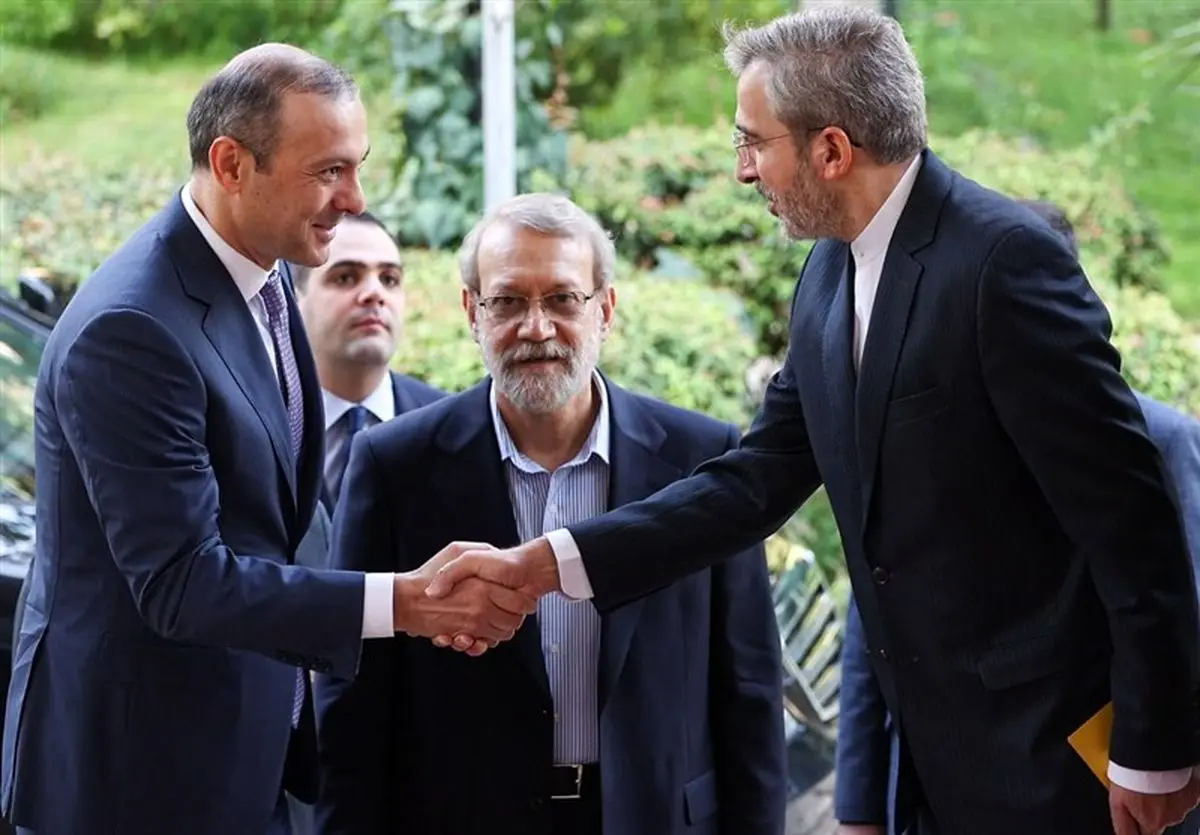SAEDNEWS: Armenia’s National Security Secretary Armen Grigoryan met with Ali Larijani, Iran’s top security official, and President Masoud Pezeshkian in Tehran. The talks centered on recent peace initiatives in Washington, regional security in the South Caucasus, and the Zangezur corridor.

Armen Grigoryan, Secretary of Armenia’s Security Council, who traveled to Tehran on Saturday, met with Ali Larijani, Secretary of Iran’s Supreme National Security Council. This visit was made at the invitation of Larijani. Grigoryan also met with Masoud Pezeshkian, the President of Iran.
Seyed Ali Saghaeian, former Iranian ambassador to Armenia, in an interview with Etemad Online, commented on the visit and the meeting between Larijani and Grigoryan. He said:
“Given the close and friendly relations between the Islamic Republic of Iran and the Republic of Armenia, regular meetings and reciprocal visits between officials of the two countries are natural. Especially following recent developments last month concerning peace between Baku and Yerevan, and the discussions about a memorandum of understanding in Washington, as well as phone contacts between the leaders of the two countries — including President Pezeshkian and the Armenian Prime Minister, and also Dr. Larijani with his Armenian counterpart — this meeting is of great significance in reviewing and reassessing issues related to security in the South Caucasus.”
He continued:
“It seems that inviting Mr. Grigoryan to Tehran is aimed at clarifying points raised in recent negotiations and agreements, particularly those discussed in Washington. This can help resolve ambiguities and issues related to the agreements reached there. In fact, this trip is being made in the context of the accords signed in the United States and will address topics such as the so-called Zangezur Corridor and other regional and bilateral matters.”
Saghaeian emphasized:
“Although the strong friendship between the two countries is notable, it must be acknowledged that such meetings and exchanges of visits, especially at this sensitive time when security issues in the South Caucasus are in the spotlight, remain customary and natural. These interactions contribute to better clarification of topics and dispelling any ambiguities in the media and political spheres.”

